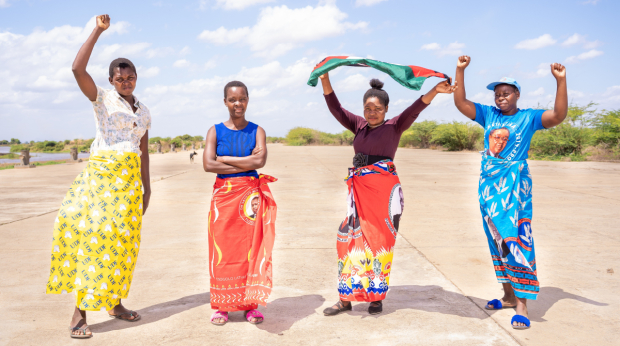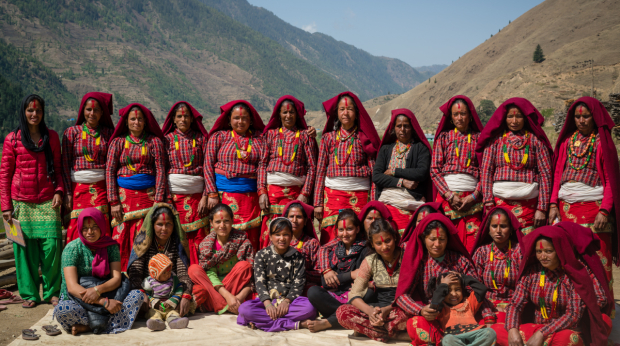Working better with civil society for gender equality: Two lessons learnt
Discussion details

The EU supports civil society organisations (CSOs) which are active in advancing Gender Equality and Women’s Empowerment (GEWE). While this has led to many positive outcomes1, an approach is needed to ensure strategic, comprehensive partnerships on GEWE with these organisations at country level.
Against this backdrop, INTPA G1 commissioned a dedicated study in the framework of the INTPA D4-managed Methodological and Knowledge Sharing Programme (MKS) to assist the EU in developing more strategic and comprehensive partnerships with CSOs to advance GEWE and promote gender transformative approaches at country level. Findings, lessons learnt and recommendations are included in the study Working better together with CSOs to address gender inequality and champion women and girls’ voice and agency.
Lessons learnt - Working better together with CSOs to address gender inequality and champion women and girls’ voice and agency2
- Lack of sufficient funding as well as ongoing restrictions and attacks on civic space are among the challenges faced by CSOs and civic movements.
- Most EU Delegations appear to be making significant progress in organising more systematic consultations with CSOs. Additional efforts to promote inclusiveness are still needed, however.
The sustainability of women’s rights organisations (WROs) and CSOs addressing GEWE is increasingly compromised as women’s organisations continue to be under-funded. The situation has worsened in recent years, especially since the outbreak of the COVID-19 pandemic. In several countries, funding for women’s rights and the capacity to fulfil them has receded as ultraconservative, fundamentalist, and patriarchal agendas – and forces opposed to gender equality – have gained visibility and political influence.
Moreover, the ongoing global backlash against democracy has led to a crisis for CSOs and civic movements in many states. Civil society faces increasing pressure and repressive responses to collective mobilisation, by authoritarian and other leaders, with severe implications for the capacity of people to hold decision-makers to account and organise for change. There is also evidence that recent attacks on the civic space contain elements specific to gender equality and women’s rights and particularly affect WROs and movements.
Although improvements have been made, additional efforts to promote inclusiveness are still needed. A broad and all-encompassing notion of civil society needs to be adopted as well, in light of the changes that are taking place across the world in the civic space concerning multiple actors who are or have the potential to advance GEWE. In particular, efforts are required to reach out to underrepresented communities and groups (i.e. women, youth, marginalised groups, etc), whose voices are often not heard because of existing barriers and challenges – hampering their mobilisation, access and influence over public policies. A closer consideration and understanding of such barriers are required, and intersectionality analyses are needed.3

Key recommendations
Lack of sufficient funding
- At global level (INTPA.G1, G2 and regional units at INTPA Headquarters): Ensure that EU funding mechanisms (not directly targeting women) are gender-responsive and can be accessed by local WROs and other CSOs championing gender equality and women’s rights. Moreover, invest in existing multilateral and women’s funds dedicated to gender equality, with established track records in effectively reaching local WROs in partner countries; and, with funding that is flexible and responsive to their needs.
- At country level (EUD): Make sure the commitments of the GAP III are met, with regards to ensuring funding to organisations and movements that contribute to gender equality.
Restrictions and attacks on civic space
- At country level (EUD): First, establish systems to support and protect women's rights defenders and other civil society actors who face threats and/or attacks. Second, support exchanges and partnerships between WROs and CSOs working on gender equality and women’s rights and “gender champions” & “like-minded” line ministries (e.g. Ministry of Gender Equality, Education/Heath) to reinforce the complementarity and synergies between the work done with the government at policy level and the support to CSOs. Third, open up and support safe spaces for dialogue between the authorities (beyond the “like-minded” line ministries) and WROs and CSOs working on gender equality and women’s rights in EU-funded interventions, across the spectrum of priorities and sectors (i.e. green deal, digitalisation; etc).
- At country (EUD) and global level (INTPA G1 and G2): Support the exchange of experiences and promote alliances and networking between WROs and CSOs addressing GEWE at national level and those operating at regional and global levels.
Inclusiveness
- At country level (EUD): Enlarge the scope of dialogue with women’s organisations/CSOs working for gender equality.4
- At country (EUD) and global level (INTPA G1 and G2): provide support and funding to enable local WROs and other CSOs working on gender to actively participate in political and policy dialogues and consultations at national, regional and multilateral level. This can include financial compensations, capacity development, etc.
- At global level (INTPA G1 and G2 with thematic and regional units): Tap into the opportunity offered by processes led by other Units (e.g. Team Europe Initiative/Working better together) to explore opportunities on how to advance jointly on engaging better with WROs and the emerging actors within these processes.
For a full list of lessons learnt and recommendations, read the study Working better together with CSOs to address gender inequality and champion women and girls’ voice and agency.
Recommend & share this article if you think it will be helpful for your peers
1 With the adoption of the EU Gender Action Plan III: An ambitious agenda for gender equality and women’s empowerment in EU external action (GAP III) on 25 November 2020, the EU reaffirms the centrality of gender equality and women’s empowerment throughout EU external action at all levels and in all sectors. GAP III aims to accelerate progress on empowering women and girls and safeguard advances in gender equality. With regards to stakeholder involvement, the new GAP emphasises the need for inclusion of civil society and local authority partners throughout implementation, notably at partner country level, in an effort to address some of the shortcomings identified in the “Evaluation of the EU’s external action support in the area of gender equality and women’s and girls’ empowerment (2019-2020)”.
2 The two lessons learnt discussed in this article are indicative and do not reflect the full list of conclusions and recommendations presented in the report Working better together with CSOs to address gender inequality and champion women and girls’ voice and agency. For more information, read the full report.
3 Evidence shows how certain women are at increased risk of being discriminated against, or experience violence, because of intersecting aspects of their identities (e.g. age, race, nationality) or circumstances (e.g. occupation, armed conflict, migration status).
4 Particularly: (i) on the GAP III/CLIP implementation (i.e. organise an annual dialogue to monitor progress); (ii) on the follow up of the Roadmap for engagement with CSOs and (iii) on the wide range of consultations and dialogues in which women’s voices are still rarely heard (i.e. climate change, trade, sustainable growth and jobs, etc).

Log in with your EU Login account to post or comment on the platform.